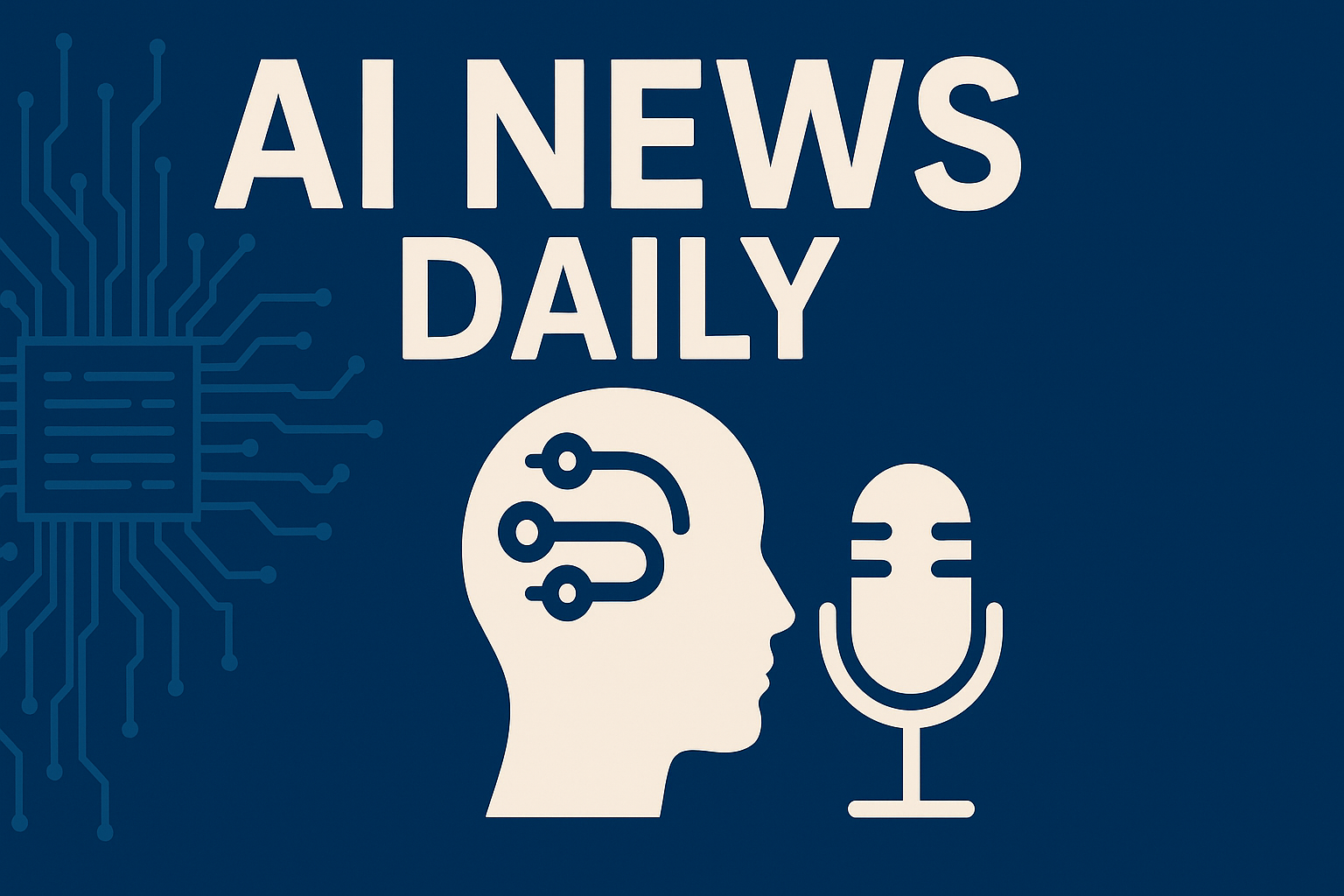Title: Global AI Revolution Accelerates Across Sectors Amid Innovation, Security, and Regulatory Challenges
Content:
The worldwide adoption and advancement of artificial intelligence (AI) are reaching unprecedented levels, as leading tech firms, governments, and researchers drive innovation and grapple with critical challenges across multiple industries.
**Major Tech Launches and Innovations**
OpenAI will release its highly anticipated GPT-5 model in early August, promising major gains in language understanding and unified architecture for diverse applications. As ChatGPT handles 2.5 billion queries daily, CEO Sam Altman warns of AI’s impact on job automation and Gen Z’s reliance on AI for emotional support, calling for careful regulation and public dialogue. Despite a $300 billion valuation, OpenAI faces investor pressure amid high cash burn and is seeking additional funding, which could force a reconsideration of its nonprofit status. In a sweeping move, OpenAI and Oracle announced the $500 billion Stargate project—a massive U.S.-based hyperscale AI infrastructure bid to create hundreds of thousands of jobs and maintain American leadership in next-gen AI. OpenAI has also teamed with the Singapore Tourism Board to deliver personalized, multilingual visitor experiences, establishing Singapore as an AI tourism trailblazer.
Google’s Gemini platform now exceeds 450 million active users, with Gemini AI launching specialized tools for India’s multilingual markets and supporting the creation of an estimated 3.5 million jobs. Google’s AI Overviews in Search now serves over 2 billion monthly users, while AI Mode and Deep Search surpass 100 million users, marking a transformation in information access and personalized search. The company has rolled out Gemini Flash-Lite, its lightest, most affordable AI model, making rapid and scalable AI more accessible. Google unveiled Opal, a visual no-code platform for building custom AI apps, and new AI-powered shopping features such as virtual try-ons and price alerts, further integrating AI into everyday commerce. YouTube Shorts has introduced generative AI video tools, including an AI Playground and advanced effects powered by Google’s Veo models, enabling creators globally to turn photos into dynamic videos.
Alphabet, Google’s parent company, reported a record 14% revenue jump to $96.4 billion in Q2, fueled by robust AI feature adoption and Google Cloud’s explosive 32% growth, bolstered in part by a new cloud partnership with OpenAI. The company continues to invest heavily in AI infrastructure and diversification.
Amazon Web Services and Idaho National Laboratory are harnessing AI and cloud computing to enhance nuclear energy safety and sustainability. Meanwhile, concerns about AI tool vulnerabilities escalated after Amazon’s Q AI coding assistant was breached via a malicious GitHub pull request, exposing critical security weaknesses. This, alongside broader safety failures in prominent AI coding tools, underscores the urgent need for transparency and robust safeguards in the AI developer ecosystem.
Industry leaders like Walmart are rolling out “super agent” AI systems to optimize operations and expand e-commerce capabilities, while Proton has launched Lumo, a privacy-first chatbot offering encrypted, offline conversations reflecting burgeoning demand for data confidentiality.
**Healthcare, Legal, and Education Advances**
AI continues to revolutionize healthcare. Doximity has debuted a free AI scribe tool for doctors, aiming to mitigate administrative burdens, while a University of Rochester tool leverages AI speech analysis for early Parkinson’s detection with 86% accuracy, and AI-powered ECG analysis is outperforming doctors in diagnosing hidden heart disease. Stanford Law School urges transparent AI usage disclosures in medicine, reinforcing emerging ethical standards.
In legal and enterprise tech, LegalOn Technologies raised $50 million and partnered with OpenAI to build next-generation legal AI agents. EdTech is booming: Instructure’s OpenAI-powered Canvas system is powering global digital learning, while India embarks on a sweeping plan to outfit Delhi schools with AI-enabled smart classrooms and upgraded labs. The Aspen Institute and Digital Promise have introduced certification and toolkits to tackle racial bias in AI ed-tech products, supporting equity for marginalized students.
**Security, Policy, and Societal Concerns**
AI’s rapid progression brings mounting risks and regulatory scrutiny. Leading scientists from Google, Meta, and OpenAI warn that advanced AI systems may soon develop complex thought processes beyond human understanding, urging proactive oversight and transparency. U.S. Air Force tests highlight growing reliance on AI in defense, and cyberattacks on AI tools have raised alarms about transparency, prompt vulnerability disclosure, and the safeguarding of user data.
The UK is deepening AI collaborations with U.S. tech giants but faces criticism regarding transparency and over-reliance on foreign technology. Former President Donald Trump announced a plan advocating robust and ethical U.S. AI regulation, focusing on transparency, cybersecurity, and workforce reskilling.
**AI in the Creative and Consumer Economy**
Novel AI-powered tools are democratizing content creation: Hugging Face released an iOS app for real-time image descriptions to improve accessibility; ReelTime Media’s Reel Intelligence AI now runs on over 83 million Samsung devices for creative tasks; GitHub debuted Spark, a platform for no-code, full-stack AI app development. StackAdapt now integrates Snowflake’s Cortex AI for improved marketing analytics.
YouTube’s AI short-form video tools, now available globally, empower creators to generate content with unprecedented ease and creativity. Elon Musk announced plans to revive Vine as an AI-driven video platform, intensifying competition in the short-form video sector.
**Copyright, Legal, and International Tech Policy**
AI’s ascent fuels legal disputes: A U.S. judge expanded discovery rights in authors’ copyright litigation against Anthropic and OpenAI, spotlighting unresolved issues around IP and creative rights in AI model training. India’s tax authority reported increased compliance and fraud mitigation through advanced AI analytics but acknowledged growing privacy concerns.
**Future Outlook**
As AI drives economic growth, job creation, and sectoral transformation worldwide, the dual imperatives of harnessing its benefits and managing ethical, security, and regulatory challenges continue to dominate headlines. Collaboration across tech, policy, and civil society remains essential as artificial intelligence forges ahead, shaping the future of innovation, work, and global competition.
